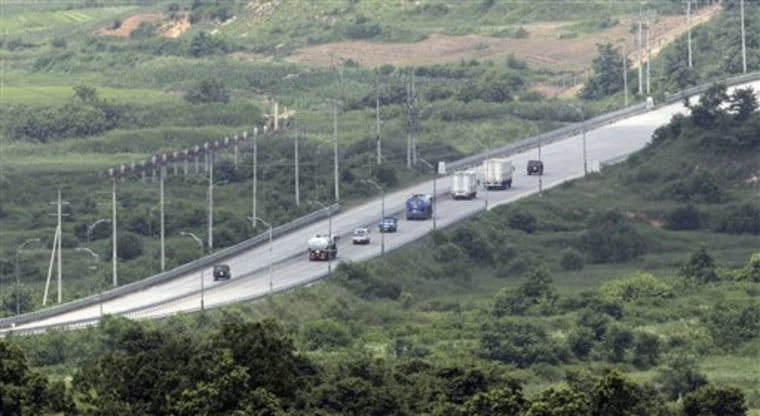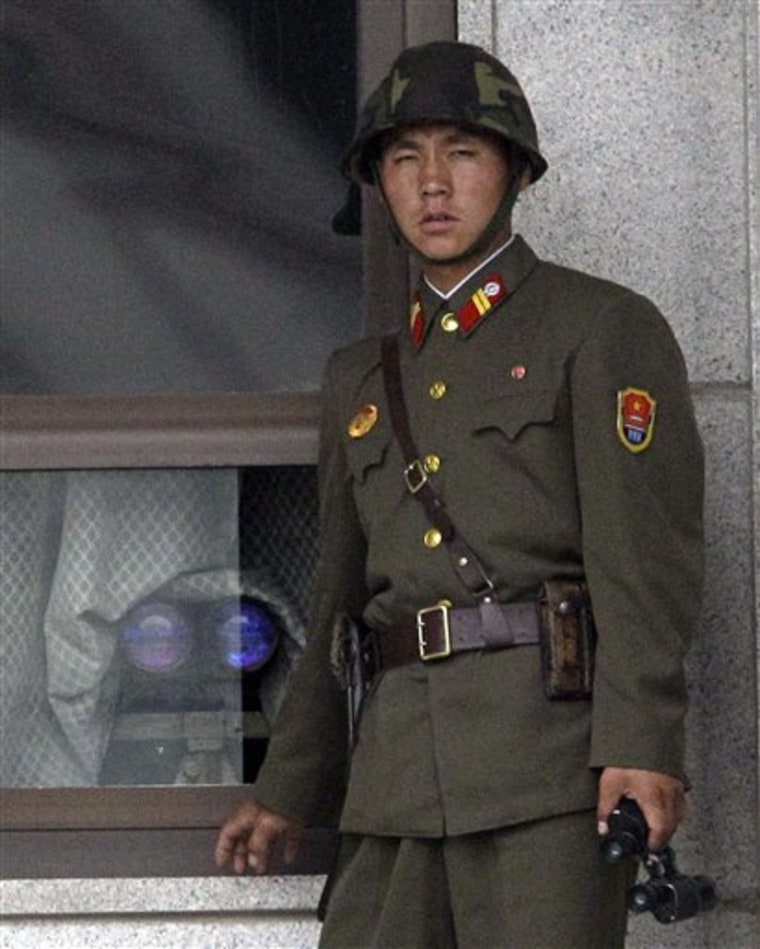Military officers from North Korea and the American-led U.N. Command met Thursday for talks on the deadly sinking of a South Korean warship that has been blamed on Pyongyang.
Colonel-level officers gathered at the Korean border village of Panmunjom for about 90 minutes, U.N. Command spokesman Kim Yong-kyu said. He gave no further details about the discussions — the first between the sides since the March 26 sinking dramatically raised tension on the Korean peninsula.
An international investigation in May concluded a North Korean submarine fired a torpedo that sank the 1,200-ton Cheonan near the tense Korean sea border, killing 46 South Korean sailors. Pyongyang flatly denies it was responsible and has warned any punishment would trigger war.
The talks originally were set for Tuesday, but the North canceled just before they were to start, requesting a delay for unspecified "administrative reasons." It later proposed they be held Thursday and the U.N. Command accepted.
It was unclear what was talked about at the meeting. South Korea's Yonhap news agency said the sides were believed to have discussed preparations for talks among higher-level military officers. The report didn't cite a source.
Yonhap earlier Thursday said the North was expected to reiterate its contention that South Korea and the U.S. fabricated the investigation results. The U.N. Command would likely argue the Cheonan was attacked by a North Korean torpedo and it was a violation of the armistice that ended the Korean War in 1953, Yonhap said.
The U.N. Command, which oversees the truce, separately investigated whether the sinking violated the truce, though the findings have not been disclosed.

Late last month, the command proposed military talks with North Korea to review its findings and initiate dialogue.
The North first rejected the offer, criticizing the U.S. for allegedly trying to meddle in inter-Korean affairs under the name of the U.N. But it reversed its position last week and proposed working-level talks at Panmunjom to prepare for higher-level talks by general officers on the sinking.
North Korea and the U.N. Command launched general-level talks in 1998 as a measure to lessen tension between the sides. If a new round is realized, they would be the 17th of their kind, according to the U.N.
The U.S. stations 28,500 troops in South Korea, a legacy of the Korean War, which ended in an armistice that has never been replaced with a permanent peace treaty.
The U.N. Security Council on Friday approved a statement that condemned the sinking but stopped short of directly blaming North Korea.
The U.S. and South Korea will likely carry out military maneuvers in response to North Korea's alleged attack on the warship, Pentagon spokesman Geoff Morrell said Wednesday. China has warned the exercises could inflame tension on the Korean peninsula.
The air and naval drills, planned after the sinking but then delayed, may be given approval to go forward at a meeting next week in Seoul between Defense Secretary Robert Gates and Secretary of State Hillary Rodham Clinton and their South Korean counterparts, Morrell said.
Pyongyang often accuses the U.S. and South Korea of staging military drills as a rehearsal for an attack on North Korea. Washington and Seoul say the exercises are purely defensive and they have no intention of invading the North.
